The Future of Work (From Home) Workshop

The Future of Work (From Home)
A Centre for Market Design Workshop
We are delighted to invite you to participate in the Future of Work (From Home) programme on Friday 3rd June, 12:30pm - 5:30pm. The Work from Home (WFH) revolution is reshaping workplaces at a pace not seen since the Great Depression. Together, we need to re-think and re-imagine what this means for workers, government, companies, and the economy.
We have curated a series of the world’s leading economic experts on WFH to explore perspectives ranging from the microeconomic impact of WFH on teams’ productivity to macroeconomic impacts on how WFH will reshape where companies and employees work.
Join us for an afternoon of insights, robust debate, and learning as we explore topics such as:
* How much do employees value WFH?
* How does WFH affect companies’ productivity?
* What diversity and mental health challenges does a WFH future present?
Our experts will present the summarised evidence and state of knowledge from the research frontier to then be discussed through extensive Q&A sessions with workshop participants. As a working group, we will discuss these new challenges and possible solutions arising from the WFH revolution.
Please join us on campus, or virtually online, in this free workshop. This programme is generously supported by the Samuel and June Hordern Endowment and the Faculty of Business and Economics, University of Melbourne. Registration is essential and can be done via the link below.
Venue:
In Person: Level 10, Woodward Conference Centre, University of Melbourne or Virtual: Zoom Link (to be sent following registration)
Registration:
CLOSED
Cost:
Free
Enquiries:
Prof David Byrne, byrned@unimelb.edu.au
Programme
| 12:30 - 1:00 | Participant Arrival and Light Lunch |
|---|---|
| 1:00 - 1:05 | Prof Paul Kofman - Sidney Myer Chair of Commerce/Dean, Faculty of Business and Economics, University of Melbourne Acknowledgement of Country and Welcome |
| 1:05 - 1:25 | Prof Nicholas Bloom (Keynote) - Stanford Graduate School of Business How and where will WFH stick? What is its impact on companies' productivity? |
| 1:25-2:05 | Peter Lambert & Prof Nicholas Bloom - London School of Economics and Stanford GSB How offering WFH and job flexibility affects employee recruiting and retention? |
| 2:05 - 2:30 | Afternoon Tea |
| 2:30 - 3:00 | Michael Brennan - Chair of the Productivity Commission WFH and Urban, Rural and Regional Reallocation of Work and Living in Australia *Session graciously supported by the Samuel and June Hordern Endowment |
| 3:00 - 3:30 | Dr Maria Recalde - University of Melbourne WFH and the Evolution of Gender Gaps in the Workplace |
| 3:30 - 3:45 | Break |
| 3:45 - 4:15 | A/Prof Victoria Baranov - University of Melbourne What are the Implications of WFH on Mental Health and Well-Being in the Workplace? |
| 4:15 - 5:00 | Industry Panel - Evolving the Workplace Toward a WFH Future What are the considerations for organisations today? What actions need to be taken? Panel Members: Ben Walsh, Chief Distribution & Propositions Officer, AIA Australia Andrew Wear, Acting General Manager - City Economist & Activation, City of Melbourne Dr Steven Hamilton (Moderator), George Washington University and ANU |
| 5:00 - 5:30 | Networking and Drinks |
Session Details
Where Will WFH Stick? What is its Impact on Companies’ Productivity?
Professor Nicholas Bloom, Stanford Graduate School of Business
Professor Bloom will provide an overview of evidence from the research frontier on whether WFH will stick in the long run, industries and contexts in which it will stick (or fail), and the impacts of WFH on companies’ productivity. Insights will be drawn from the Survey of Working Arrangements and Attitudes, the world’s leading database on the economics of WFH, which dates to 2019, before the COVID-19 pandemic. Implications for how to organize teams and workplaces within organizations will be discussed.
How Offering WFH and Job Flexibility Affects Employee Recruiting and Retention?
Peter Lambert, London School of Economics
Professor Nicholas Bloom, Stanford Graduate School of Business
Together with co-author Peter Lambert from the LSE, Professor Bloom will present a new cross-country measurement of remote work adoption. This work leverages nearly half-a-billion online job ads from Australian, United States, United Kingdom, Canada, and New Zealand, spanning 2014 - 2022. With these novel data, the researchers document new trends in WFH across countries, cities, occupations, and firms.
WFH and Urban, Rural, and Regional Reallocation of Work and Living in Australia
Michael Brennan, Chair of the Productivity Commission
Chair Brennan will discuss the Productivity Commission’s landmark 2021 research paper Working from Home. His session will focus on macroeconomic perspectives of WFH, how it will affect how companies and employees will organise their work, and how WFH will reshape local economies across urban, rural, and regional Australia.
WFH and the Evolution of Gender Gaps in the Workplace
Dr Maria Recalde, University of Melbourne
Dr Recalde will summarize what we know about the impacts of WFH on gender gaps in the workplace. She will speak to evidence on how gender inequality evolved during and coming out of the COVID-19 pandemic, how it continues to evolve as companies and employees reshape how they work, and implications for business policies looking to address gender gaps in a WFH future.
What are the Implications of WFH on Mental Health and Well-Being in the Workplace?
A/Prof Victoria Baranov, University of Melbourne
A/Prof Baranov will overview evidence and insights worldwide on the impacts of the COVID-19 pandemic and the subsequent transition to WFH on employees’ mental health and well-being and interrelated economic impacts. Implications for business and government policies aimed at ensuring the well-being and mental health of individuals will be discussed.
Industry Panel: Evolving the Workplace Toward a WFH Future
Ben Walsh, Chief Life Insurance Officer, AIA Australia
Andrew Wear, City Economist & Director, Economic Development and International, City of Melbourne
Steven Hamilton (Moderator), Assistant Professor of Economics, The George Washington University
To finish the day, we will have a panel of "front line" practitioners who are reshaping companies to adapt to WFH with in-person and virtual audience Q&A.
Bios
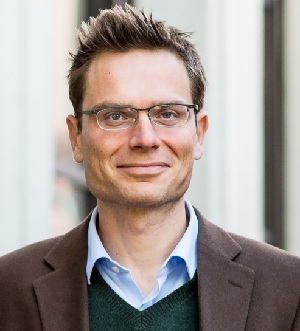
Nicholas Bloom (Keynote) is one of the world's most pre-eminent economic experts on firm productivity, management practices, and hybrid working structures. He is the William Eberle Professor of Economics at Stanford University and a Fellow of the American Academy of Arts. His world-renowned research has been published in the leading academic journals in economics and featured in the Harvard Business Review, The Economist, Forbes, Financial Times, New York Times, Washington Post, and numerous other media outlets worldwide.
See: “Hybrid Work Is Here To Stay. Now What? (Back to Work, Better)” for his recent interview on the future of WFH on the Harvard Business Review IdeaCast.
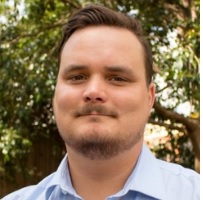
Peter John Lambert is a research economist and final-year PhD student at the London School of Economics and Political Science (LSE). He is an Australian national and recipient of the 2018 Commonwealth Scholarship Award. His research uses a wide variety of novel unstructured data sources to analyse firm behaviour, with a focus on economic growth, uncertainty, financial frictions, management, and innovation.
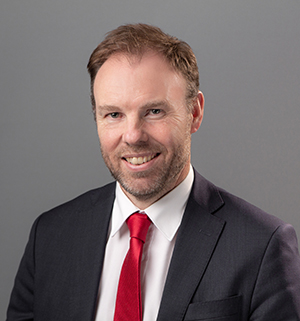
Michael Brennan is the Chair of the Productivity Commission. Previously he was Deputy Secretary, Fiscal Group, in the Federal Treasury and was responsible for budget policy, retirement incomes, Commonwealth-State relations, social policy, and infrastructure financing. Before that, Michael was Deputy Secretary, Economic in the Victorian Department of Treasury and Finance, and an Associate Director in the economics and policy practice at PricewaterhouseCoopers.
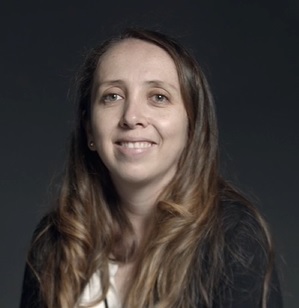
Maria Recalde is a Senior Lecturer in the Department of Economics at the University of Melbourne and an affiliate of the Centre for Market Design. Much of her work uses cutting-edge experimental methods to investigate the often-hidden factors contributing to gender gaps in the workforce. It has been published in the top academic journals in economics and featured in media outlets such as the New York Times, Forbes, The Atlantic, and Harvard Business Review.
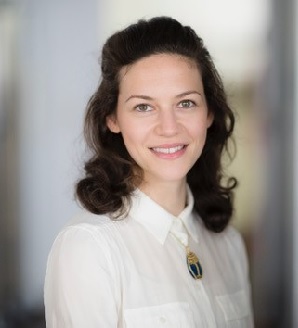
Victoria Baranov is an Associate Professor of Economics at the University of Victoria Melbourne and an affiliate of the Centre for Market Design. She is one of the world's foremost experts on the economics of mental health, often partnering with governments and NGOs worldwide to undertake her research. She received the 2020 Australian Health Economics Society Rising Star Award for her research and policy work on economic impacts of mental health and well-being.
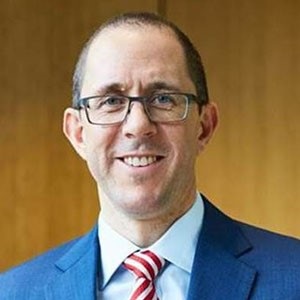
Ben Walsh is the Chief Distribution & Propositions Officer at AIA Australia where he is responsible for distribution, product, and pricing for its life insurance business. He is also responsible for the health insurance and investment businesses. He previously worked for Mercer and MMC for more than 25 years, including as the MD & CEO of Mercer in the Pacific where he was responsible for the firm's health, wealth, and career business segments. Ben was appointed to The University of Melbourne's FBE Advisory Board in 2015.
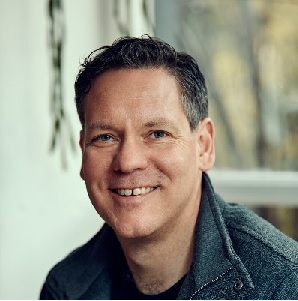
Andrew Wear is Acting General Manager, City Economy and Activation, at the City of Melbourne. He has responsibility for economic policy and programs, business engagement, international education, and international relationships. He is also currently supporting the city's economic response to the impacts of COVID-19 and the city's 10-year economic development strategy. Andrew has a passion for public policy and has made contributions to policy research and debate in the Australian Financial Review, The Guardian, and various academic journals.
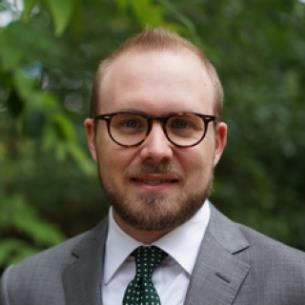
Steven Hamilton is an Assistant Professor of Economics at The George Washington University and a Visiting Fellow at the Tax and Transfer Policy Institute at the Australian National University. He is a former Australian Treasury official who has worked on several federal budgets and is a regular contributor to public policy debate in both digital and print media, including The Washington Post, VoxEU, Australian Financial Review, The Guardian, The Age, The Australian, and The Sydney Morning Herald.

David P. Byrne (Organizer)is a Professor of Economics at the University of Melbourne and Deputy Director of the Centre for Market Design. He does empirical research in industrial organization, focusing on retail, energy, and resources. He has run numerous large-scale randomized control trials with businesses and governments to study consumer decision-making, and been an expert in antitrust cases and energy market design reviews in Australia, Canada, and New Zealand.